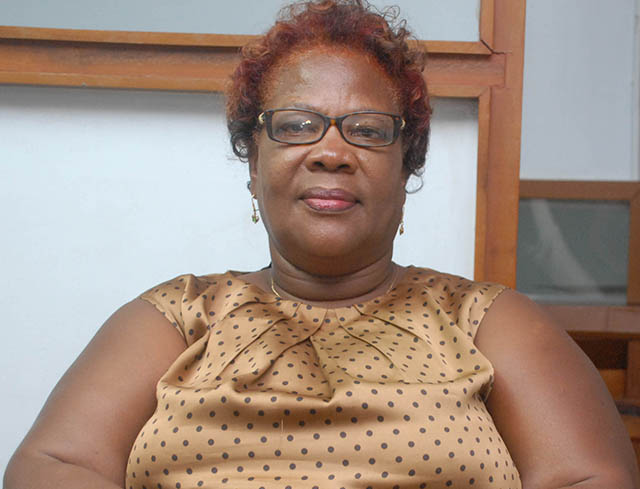Cheryl Williams might easily be mistaken for a sprightly but retiring grandmother focused on simply enjoying this phase of her life though once you hear her story you quickly understand that nothing could be further from the truth. The last thing you would think, however, is that for almost thirty years Cheryl has been making a living in the gold-mining sector though not, at the inception, in gold-mining itself.
Once she had been enticed by her older sister, Joan, to leave a job as a Security Guard at Kwakwani in the bauxite industry and join her in a thriving bakery business at Puruni she took a decision that that was to be a decisive turn in her own life. In 1991, Joan moved directly into gold-mining, acquiring her first dredge, affording Cheryl her initial first-hand experience of the sector.
It was to be a further three years before Cheryl made her own ‘plunge’ into the sector. She talks about her transition animatedly, not once omitting the role that her sister played in grounding her in the ways of the industry. Then she diverts, deliberately, to address what she says are the misconceptions associated with being in the gold-mining sector. Whereas, from the outside, there are perceptions of a ‘bed of roses’ Cheryl says that mining is usually “hard work, continuous challenges” and all of that for what, all too frequently, is no more than a modest living.
There is a history, Cheryl says, to her family’s association with business in the interior. Her grandfather, Philip Gabriel, had migrated here from Grenada, moved to Bartica and gotten into business, running trucks into the interior. He had passed on the business to his son, her father so that it was here that that the groundwork was laid for the life the sisters now lead.
If there have been “gender challenges” associated with public perceptions of the gold-mining sector as a male-dominated industry, Cheryl is quick to say that she has encountered no such prejudices. It is, from her perspective, a matter of how seriously you take your job. In her book and in her experience you get what you earn in terms of respect and recognition….gender notwithstanding. Nor did she allow the fact of her two children to snuff out her ambitions. The younger of the two a daughter who now resides in the United States was just five years old when her mother ‘took to the bush.’ Cheryl credits her own mother for ‘holding the fort’ whilst she embarked on her venture.
For the smaller miners not blessed with expansive claims, it is land that underpins the divisions and prejudices in the industry. She talks about her own experiences, among others, of working claims controlled by other miners and at one juncture of the other being forcibly removed.
There were other earlier challenges too…like the shenanigans of miners who would fraudulently seek to discharge their debts to the shop she ran by seeking to discharge their liabilities in ‘plugged gold…” gold coated in a metal of lesser value, essentially increasing its weight and providing it with a deceptive value.
You had to have been a victim of that exploitative system, Cheryl says, to understand the importance of the advent of the sixteen mining syndicates whose members have found a new lease on life. Those syndicates and their members, she says, now enjoy the benefit of lands allocated by the Guyana Geology & Mines Commission (GGMC) that have effectively ‘liberated’ them from the exploitative grip of the mining ‘barons’ who, up to this day, in some instances, still profit handsomely from claims that they cannot ‘work’ themselves.
What makes syndicates significant, Cheryl says, is that it could mark the start of the removal of a stigma from the gold-mining industry associated with the long-held belief that much of the land-allocation in the gold-mining industry is underpinned by prejudice. She is upbeat about the prospect of changing attitudes to mining and the mining sector in circumstances where significant numbers of miners now control their ‘own’ lands as syndicate members.
On March 1 Cheryl Williams was elected Head of the National Mining Syndicate (NMS) the umbrella body charged with overseeing adherence to the strict rules under which the individual syndicates will have to work. She is under no illusions about the challenges associated with managing collectives of miners in a sector where individual interests can often outweigh any sense of collective good. What Cheryl is banking on is her own hard-won reputation as a woman of principle coupled with the family roots which the Williamses have put down at Paruima over more than three decades. She believes, too, that miners’ experiences of the challenges associated with ‘going it alone’ will cause them to better appreciate the security afforded by working together.




